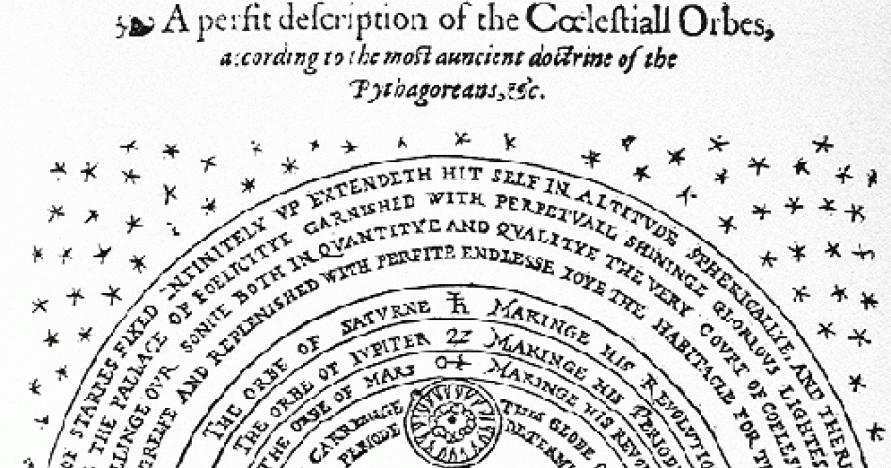
Please join us for lunch and a guest lecture by Jane Hwang Degenhardt, who visits us from the University of Massachusetts Amherst.
Please RSVP for lunch.
This talk will explore how emerging speculations about the possibility of an infinite cosmos during the sixteenth century may have influenced Shakespeare’s understanding of the capacities of both nature and art for variation. It will offer insight into some of the major shifts in cosmological paradigms over the course of the sixteenth century, with attention to the residual influence of ancient traditions, including Pythagorean and Stoic philosophies, as well as the emerging theories of Nicolaus Copernicus, Thomas Digges, and Giordano Bruno. It will then turn to the question of how Shakespeare’s plays may be said to grapple with the aesthetic implications of infinity. In particular, I will focus on Shakespeare’s engagement with the concept of infinite variation and how it compels a rethinking of the aesthetic principles of order, kind, and harmony that were fundamental to early modern cosmology. Shakespeare’s plays repeatedly demonstrate nature’s capacity to produce infinite variety through characters who are deemed aberrant, ugly, and grotesque. Enter Caliban, the weird sisters, Aaron the Moor, and Richard III. How do these figures embody an aesthetics of diversity and disharmony that routes back to the notion of an infinite cosmos? How do infinite variety and cosmological disorder become attached to a racializing logic? And what purpose does ‘ugliness’ serve? These questions lead me to some reflections on the role of the sublime in Shakespeare as a cosmological aesthetic concept that both refuses a totalizing finitude and generates new orders of kinds.
Jane Hwang Degenhardt is Professor of English at the University of Massachusetts Amherst. Her scholarship focuses on Shakespeare and early modern drama, with particular interests in the effects of globalizing processes, historical and speculative understandings of “worlding,” and the intertwined histories of religion, race, and empire. She is the author of Globalizing Fortune on the Early Modern Stage (2022) and Islamic Conversion and Christian Resistance on the Early Modern Stage (2010), and she currently serves as lead editor of the journal English Literary Renaissance.
This event is co-sponsored by the Center for Early Cultures. Free and open to all, this event is made possible by our generous donors.
